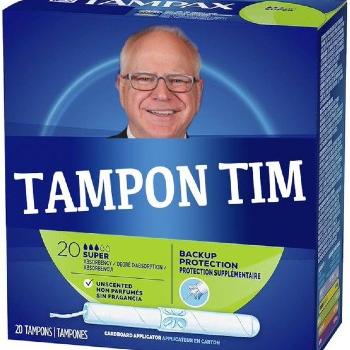Aside from conservatives, liberals and analysts, everyone seems impressed with the Bush administration's new plans for balancing the budget restoring fiscal responsibility slightly ameliorating the tide of red ink:
President Bush's goal of cutting in half a projected $500 billion federal deficit within five years is being dismissed as too timid by conservatives, unachievable by analysts and laughable by Democrats.
What's particularly, if predictably, disturbing is to read the strategy intended to reduce this deficit:
White House officials say to achieve their goal, Bush will rely chiefly on two strategies. He will propose extending tax cuts that would otherwise expire, which they say will spur the economy, and limiting the growth of spending that Congress must approve each year, probably to 4 percent or less.
Yep. Deficit reduction through tax cuts. Just because it's never worked before doesn't mean it won't work this time.
Kudos to Brad DeLong for providing the link to the uncut version of Alan Fram's AP story. And kudos to Fram for actually providing some reporting on the issue in question, instead of the usual useless collection of he-said, she-said quotes from opposing sides.
Here's more from Fram:
The nonpartisan Congressional Budget Office projected last August that after peaking at $480 billion this year, the gap would drop to $170 billion by 2009 — if no new tax cuts are enacted and spending grows only at the rate of inflation.
Those assumptions have already proved false. Congress since August has enacted a Medicare expansion creating prescription drug coverage and improvements in veterans' benefits projected to add a combined $52 billion to the deficit in 2009.
Other costly proposals in the works include Bush's plan to extend expiring tax cuts; a revision of the alternative minimum tax to prevent middle-income earners from paying it; and energy legislation that has already passed the House.
If, along with those items, spending controlled by Congress grows at the average 7.7 percent annual rate seen since 1998, the resulting 2009 deficit would be $666 billion, G. William Hoagland, budget aide to Senate Majority Leader Bill Frist, R-Tenn., warned senators in a recent memo.
That would mean $416 billion in budget savings — an enormous amount — would be needed to reduce that year's red ink to $250 billion.
If congressionally approved spending grows only at the rate of inflation, the 2009 deficit would be $432 billion, Hoagland wrote.
Lawmakers have shown little taste for such a small increase. If they did — and that would mean no unforeseen expenses like new wars — it would still require $182 billion in 2009 savings.
Acknowledges House Budget Committee Chairman Jim Nussle, R-Iowa, who supports Bush's goal, "It's not an easy lift."
That's an understatement, say many budget analysts. They say that considering the added tax cuts and spending increases Congress is likely to enact, it would take politically unthinkable tax increases and cuts in popular programs to achieve the savings needed to halve the projected deficit.
This is America in 2003. Necessary tax increases are "politically unthinkable." Living large and passing the debt on to our children is perfectly acceptable.
(See this previous post for more on the deficit.)
















